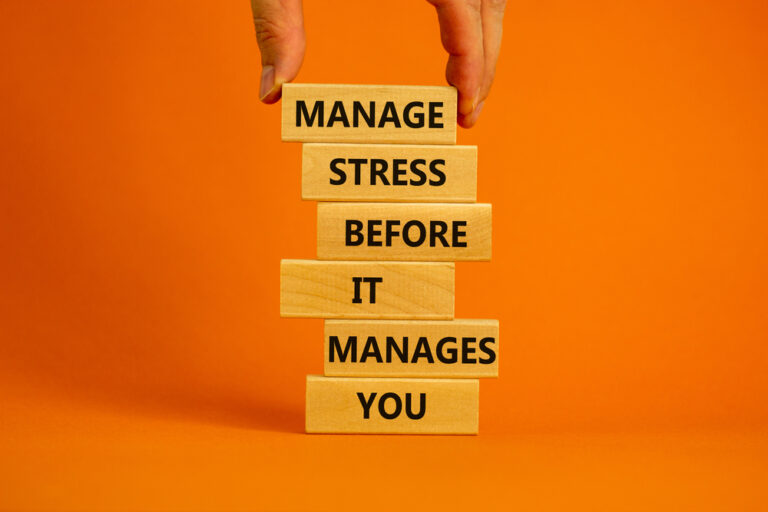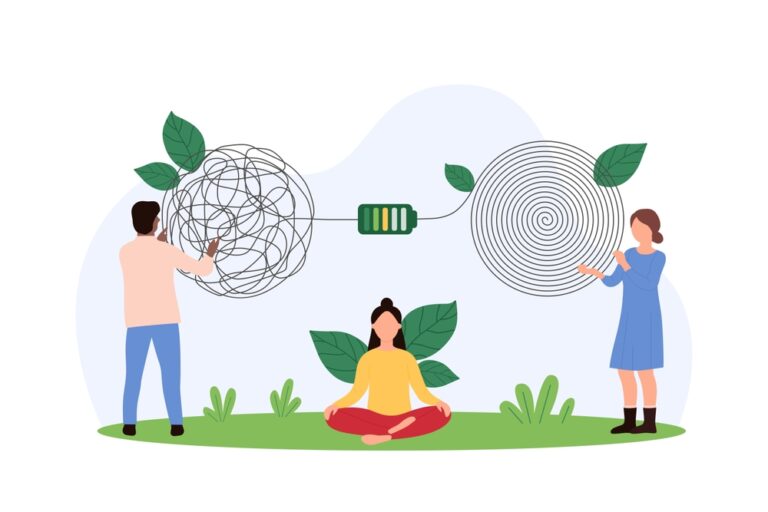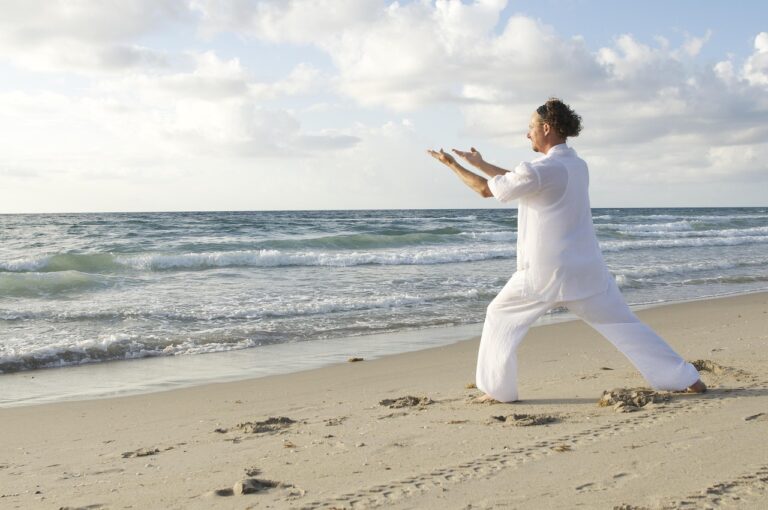Deep-rooted Reasons: Why People Meditate
In today’s fast-paced and stress-filled world, more and more people are meditating to find inner peace and clarity. Why People Meditate: Meditation is more than just a tool for stress relief – it is a profoundly transformative practice that can lead to self-discovery and personal growth.
By taking the time to slow down, breathe, and quiet the mind, individuals cultivate a sense of presence and create a space for introspection. Beyond the physical and mental benefits, meditation provides a unique opportunity to explore the deeper aspects of one’s being and connect with the true self.
From ancient spiritual traditions to modern scientific studies, meditation has been shown to profoundly impact individuals’ mental, emotional, and physical well-being. It offers a path to self-awareness, increased compassion, and a greater understanding of the interconnectedness of all things.
Whether seeking stress relief, spiritual enlightenment, or personal growth, the reasons why people meditate are as diverse as the individuals themselves. This article will explore the deep-rooted reasons behind this age-old practice and how it can lead to a more fulfilling and meaningful life. So, grab a cushion, find a quiet space, and explore meditation’s transformative power together.
The History of Meditation
Meditation has a rich history that spans thousands of years and is deeply rooted in various spiritual traditions. Its origins can be traced back to ancient civilizations such as India, China, and Egypt, where it was practiced for spiritual awakening and enlightenment.
In ancient India, meditation was an integral part of the yogic tradition and was practiced by sages and ascetics to attain self-realization and union with the divine. The teachings of the Buddha also emphasized the practice of meditation as a path to liberation from suffering and the attainment of enlightenment.
Meditation has been practiced in different forms and under various names. Each tradition offers unique approaches and techniques, from Zen meditation in Japan to Vipassana in Southeast Asia. Today, meditation has transcended cultural and religious boundaries and has become a widespread practice worldwide.
The Benefits of Meditation
Meditation offers advantages that reach well beyond stress reduction and relaxation. Numerous scientific studies have shown that regular meditation can profoundly impact individuals’ mental, emotional, and physical well-being.
One of the key benefits of meditation is its ability to reduce stress and anxiety. By focusing on the present moment and cultivating mindfulness, individuals can break free from the constant stream of thoughts and worries that often plague the mind. This can lead to greater calm, tranquility, and overall well-being.
Meditation has also been shown to improve mental clarity and focus. By training the mind to stay present and focused on a single point of attention, individuals can enhance their cognitive functions and improve their ability to concentrate. This can be particularly beneficial in today’s digital age, where distractions are abundant, and attention spans are short.
Furthermore, meditation has been linked to improved emotional well-being and increased self-awareness. Through meditation, individuals learn to observe their thoughts and emotions without judgment, allowing them to develop a deeper understanding of their inner workings. This increased self-awareness can lead to greater emotional resilience, improved relationships, and a more balanced and fulfilling life.

Understanding Stress Relief Through Meditation
Stress has become a prevalent issue in today’s society, with many people experiencing high levels of chronic stress. From demanding work schedules to personal responsibilities, the pressures of daily life can take a toll on both the mind and body. Meditation offers a powerful tool for managing and reducing stress.
When we experience stress, our bodies enter a fight-or-flight response, triggering a cascade of physiological reactions. Meditation helps to activate the body’s relaxation response, which counteracts the stress response and promotes a state of calm and relaxation.
Through regular meditation, individuals can learn to identify the signs of stress in their bodies and minds and develop the skills to manage them effectively. By quieting the mind and focusing on the breath, meditation can help individuals break free from the cycle of stress and cultivate a greater sense of peace and well-being.
Exploring Self-Discovery Through Meditation
Beyond stress relief, meditation provides a unique opportunity for self-discovery and personal growth. By creating a space for introspection and self-reflection, individuals can explore the deeper aspects of their being and connect with their true selves.
In our fast-paced and constantly connected world, losing touch with our innermost desires, values, and passions is easy. Meditation allows us to slow down, disconnect from external distractions, and tune in to our inner voice. It provides a space for self-inquiry and self-exploration, allowing us to clarify who we are and what truly matters to us.
Through meditation, individuals can develop greater compassion and empathy towards themselves and others. Individuals can learn to observe their thoughts and emotions with kindness and understanding by cultivating mindfulness and non-judgmental awareness. This increased self-compassion can lead to greater self-acceptance and a more compassionate and empathetic approach to others.
The Science Behind Meditation
Recently, there has been a growing interest in the scientific study of meditation and its effects on the brain and body. Advances in neuroscience have provided insights into the physiological and psychological mechanisms underlying the benefits of meditation.
Research has revealed that consistent meditation practice can result in alterations to both the structure and function of the brain. For example, meditation has been found to increase the thickness of the prefrontal cortex, a region associated with attention, self-awareness, and emotional regulation. It has also been shown to decrease activity in the amygdala, the brain’s fear center, which is responsible for the fight-or-flight response.
Furthermore, meditation has been found to impact various physiological markers of well-being positively. It has been shown to reduce blood pressure, lower heart rate, improve immune function, and reduce inflammation. These findings highlight the mind-body connection and the potential of meditation as a holistic approach to health and well-being.
Different Types of Meditation Techniques
Meditation encompasses various techniques and practices, each with its unique focus and approach. While the ultimate goal of meditation is to cultivate a state of presence and mindfulness, different techniques can be used to achieve this state.
Mindfulness Meditation
One of the most common forms of meditation is mindfulness meditation, which involves focusing on the present moment without judgment. This can be done by focusing on the breath, bodily sensations, or a specific object of meditation. Mindfulness meditation is often recommended for beginners and can be practiced in various settings, from sitting quietly to engaging in daily activities with full awareness.

Loving Kindness Meditation
Another popular form of meditation is loving-kindness meditation, also known as metta meditation. This practice involves cultivating love, compassion, and goodwill towards oneself and others. By repeating specific phrases or intentions, individuals can develop a greater sense of connection and empathy towards all beings.
Other Types of Meditation
Other types of meditation include transcendental, mantra, and visualization meditation, among others. Each technique offers its unique approach and benefits, and individuals can choose the one that resonates with them the most.
How to Start a Meditation Practice
Starting a meditation practice can seem daunting, especially for beginners. However, with a few simple steps, anyone can begin to experience the benefits of meditation.
- Find a quiet space where you can sit comfortably without distractions. It can be a dedicated meditation room, a corner of your home, or a park or garden. Create a peaceful environment by dimming the lights, playing soft music, or lighting candles.
- Find a comfortable sitting position. You can sit on a cushion or a chair, maintaining an upright posture with your feet firmly grounded. If sitting cross-legged is uncomfortable, you can also sit on a chair with your feet flat on the floor.
- Once settled in your chosen position, bring your attention to your breath. Notice the sensation of the breath as it enters and leaves your body. If your mind wanders, gently get it back to the breath without judgment.
- Begin with brief meditation sessions lasting 5-10 minutes, and incrementally extend the duration as you grow more at ease. Consistency is key, so aim to practice meditation every day, even if it’s just for a few minutes.
There are also many resources available to support your meditation practice. You can find guided meditation apps, online courses, and books that offer step-by-step instructions and guidance. Explore various techniques and discover the ones that resonate most effectively with your preferences and needs.
Resources for Further Exploration
If you’re interested in exploring meditation further, many resources are available to deepen your understanding and practice.
- Books: “The Miracle of Mindfulness” by Thich Nhat Hanh, “The Power of Now” by Eckhart Tolle, and “10% Happier” by Dan Harris.
- Apps: Headspace, Calm, and Insight Timer offer guided meditation sessions and mindfulness exercises.
- Online Courses: Mindfulness-Based Stress Reduction (MBSR) and Mindfulness-Based Cognitive Therapy (MBCT) are evidence-based programs that teach mindfulness meditation.
- Local Meditation Centers: Many cities have meditation centers or groups where you can learn and practice meditation in a supportive community.
Meditation is a unique journey, as what proves effective for one person may not be the same for another. Allow yourself to explore different techniques and approaches, and trust your intuition to guide you.
Conclusion: Why People Meditate
Meditation is not just a practice for stress relief; it is a powerful tool for self-discovery, personal growth, and transformation. By taking the time to slow down, breathe, and quiet the mind, individuals can explore the deeper aspects of their being and connect with their true selves.
Seeking stress relief, spiritual enlightenment, or personal growth, the reasons why people meditate are as diverse as the individuals themselves. By embracing these deep-rooted reasons and incorporating meditation into our lives, we can cultivate a greater sense of peace, clarity, and fulfillment.
So, take hold of a cushion, seek out a tranquil spot, and commence your meditation voyage. Allow yourself to explore the depths of your being, connect with your true self, and discover the transformative power of meditation.
Happy meditating!







